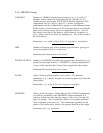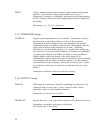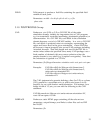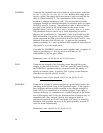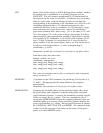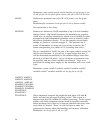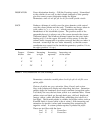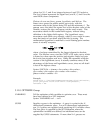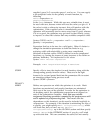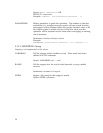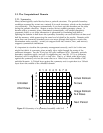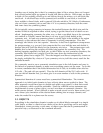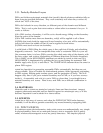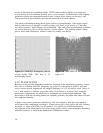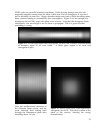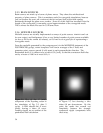supplied, guess N+2 overwrites guess 1, and so on. You can supply
a pre-computed value for the penalty or merit function, by
including
merit=<expression> or
penalty=<expression>
in the GUESS statement. While this can save valuable time, it must
be used with care, because POEMS will trust the value you give it. If
the value is stale or otherwise incorrect, this will interfere with the
optimization. If the supplied value is unrealistically poor, the
optimizer will incorrectly tend to move away from it, good, whereas
if it is too good, the optimizer may get stuck in that vicinity, trying
to improve a value that is better than any available computed value.
Syntax: GUESS <var1> = <expression> <var2> =, <expression>....
[penalty = <expression>]
LIMIT Expression that has to be true for a valid point. Often it’s better to
change the simulation parameters to build the limits in--e.g.
replacing width with abs(width) or using more complicated
functions of absolute values. LIMIT is better for more complicated
functions, e.g. forcing the corners of some structure to lie within an
arbitrary boundary. Not implemented in this release.
Syntax: LIMIT <Boolean expression>
Example: LIMIT length*width*height ≤ MaxVolume
STORE Specify a file to store the simplex for each iteration, along with the
corresponding penalty function values. These are in the right
format to be cut and pasted back into the parameters file to restart
an interation without losing previous work.
Syntax: STORE <filename>
PENALTY
MERIT Defines an expression on which the optimizer is to work. Merit
functions are maximized, and penalty functions are minimized.
Only one of the two can be specified. In order for the optimizer to
do anything useful, the optimization expression must depend on
each of the optimization variables. Note that any variable
assignment involving quantities computed by the postprocessor will
not be updated at postprocessing time. That means that the
dependence on this iteration’s results must be included explicitly in
<expression>. For example, if the iteration is minimizing the loss of
a coupler, you might specify MERIT 10*log10(efficiency), which
will work fine, but you can’t use SET dBloss=-
10*log10(efficiency) up in the GLOBAL section and then specify
PENALTY dBloss in the OPTIMIZE section--if you do, you’ll wind
up with stale data. This can sometimes be useful, but not usually.
29



